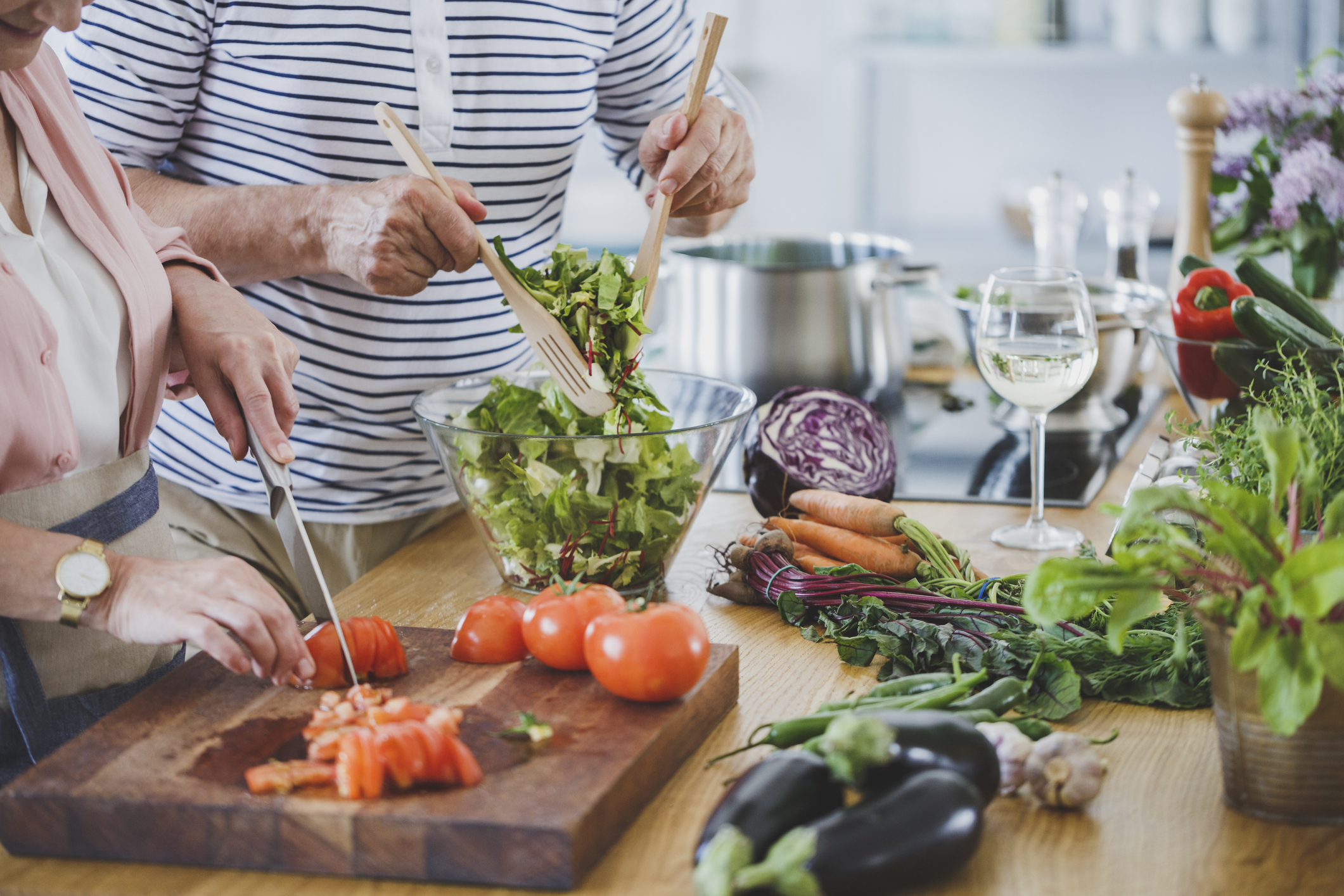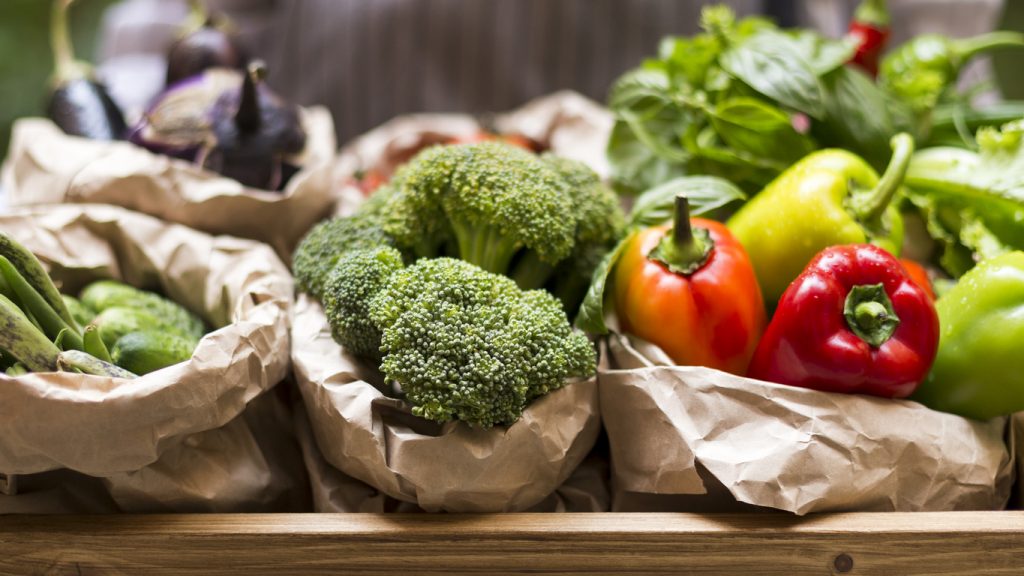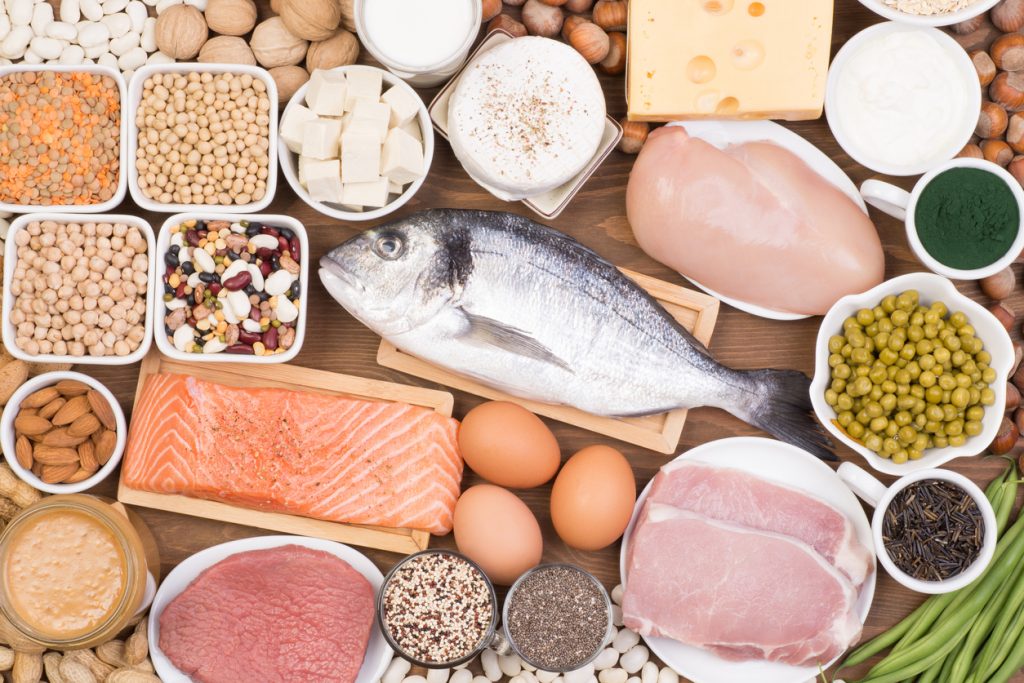Newly diagnosed with cancer, you may be wondering – as many do – if now is the time to be changing your diet?
Certainly, the patients I meet are buzzing with questions about this. They want to know if there are certain foods they should be eating, if they can still enjoy a drink, whether they should they be trying to lose weight – while some question if now is really the right time to change a lifetime’s eating habits?
In this article I will help answer all those questions and more.
So, what should I be eating?
First, let’s make it clear that there is no set prostate cancer diet nor are there certain ‘super’ foods that you must include in your meals. Unfortunately, for any new research singing the praises of a certain ‘super’ food, there is generally a similar amount of research to suggest there is little or no benefit, so adopting a healthy balanced diet really is the best thing you can do right now.
Think of yourself as being like an athlete preparing for an event – eating well is going to help get your body in shape to tolerate and recover from any treatment you might be about to embark on. Our body needs energy, protein, vitamins and minerals to perform optimally and heal.
That said, knowing what is and what isn’t a healthy eating plan can be confusing – but adopting simple basics is all it takes.
Research suggests that the gold standard approach to healthy eating is to adopt the principles of the Mediterranean diet. This is an approach rather than a specific eating plan – and involves eating plenty of fruit and vegetables, lean sources of protein, whole grains, minimal amounts of red meat, and plenty of nuts and healthy fats.
This approach appears to underpin good health and helps minimise the amount of inflammation in the body. This is important as inflammation is thought to be the catalyst for many diseases, such as type 2 diabetes, heart disease and cancer.
The aim is to get as broad a range of nutrients as possible – think of your diet as being like a jigsaw that needs lots of varied elements to make a whole picture.
The basic principles to adopt are:
- Include protein with every meal. This is the body’s building block needed to keep cells and tissues in good repair. Good sources include tofu, fish, nuts, pulses, beans and chicken.
- Don’t get stuck in a food rut – even a healthy rut. Broccoli is great, but if you want to get yourself in the best possible shape you need to mix up what you are eating. A varied diet will also help ensure you get all the vitamins, minerals and phytonutrients (the natural nutrients found only in plants) you need.
- Have different colour plant-based foods with each meal – ideally, aim to eat 30 different plant-based foods per week (this includes fruit and veg, pulses, grains such as oats and brown rice, nuts and seeds). This has been found to increase the number and diversity of the beneficial bacteria in the gut, which are a vital part of your immune system and are needed for general health.
- Eat wholegrain foods and swap any white carbs for brown. Brown rice, brown pasta and brown bread will help increase your fibre intake, which is important for keeping the digestive system and bowels healthy. Whole grains contain more vitamins and minerals than the more processed white pasta, rice and bread.
- Think of red meat as an occasional treat. When eaten in large amounts, there are clear links to increased health risks, so limit your intake to a couple of times a month.
- Fat is your friend, helping you absorb certain vitamins and giving you energy. What the fat must be, however, is the right kind of fat. Use olive oil in place of other fats and include oily fish in your meals twice a week. That includes salmon, mackerel, trout – tinned sardines are also a great source.
Is there anything I should cut out of my diet altogether?
I would say there’s nothing you should forbid yourself from eating – as long as you aren’t eating too much of it.
Many dieticians – myself included – advocate an 80/20 approach to healthy eating – that means you are good for 80 per cent of the time and not so strict for the rest of it. So, if you fancy a pudding, go ahead and have one – but don’t have one every night.
And if you fancy it, the odd drink is fine – but don’t overdo it. Alcohol can increase fatigue and may make you feel nauseous. But a glass of red wine with dinner or sipping a small beer as you relax at the end of the day is perfectly acceptable.
Once you start treatment, however, check with your doctor, as alcohol may interfere with certain drug regimens.
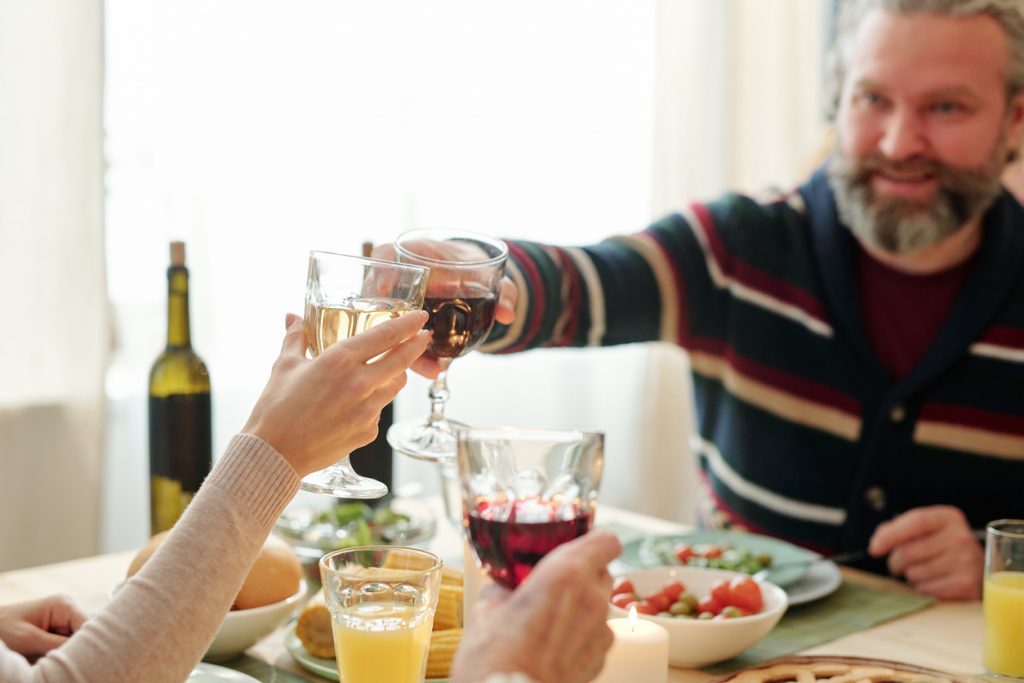
Is now the right time to lose weight?
This depends on your circumstances. There is some scientific evidence that obese men (that is, those with a body mass index (BMI) over 30) with prostate cancer may have worse outcomes than those of a healthy weight, although this isn’t true for everyone.
Losing weight will make you feel fitter, it can relieve aches and pains, improve sleep, reduce fatigue and give you a psychological boost – but if you find the idea difficult, this might not be the right time to try to slim down.
It’s important that you talk to your doctor/oncologist before embarking on a weight loss programme if you are about to start treatment, as your body needs to be properly nourished at this time.
What if I am a lower weight than I should be?
Building yourself up to a healthy weight may help you cope better with the treatment ahead. I advise my underweight patients to try the following:
- Eat small portions regularly – aim for no longer than four hours without eating.
- Indulge in puddings and add fruit to increase the nutrient quota. Think oaty fruit crumbles with custard.
- ‘Dress’ your vegetables with a slug of olive oil.
- If you are using dairy-free milks, add extra protein powders (for example pea/soya/flaxseed protein powder) to make sure you still get enough protein and energy.
- Add chopped nuts and seeds to top soups and cereals.
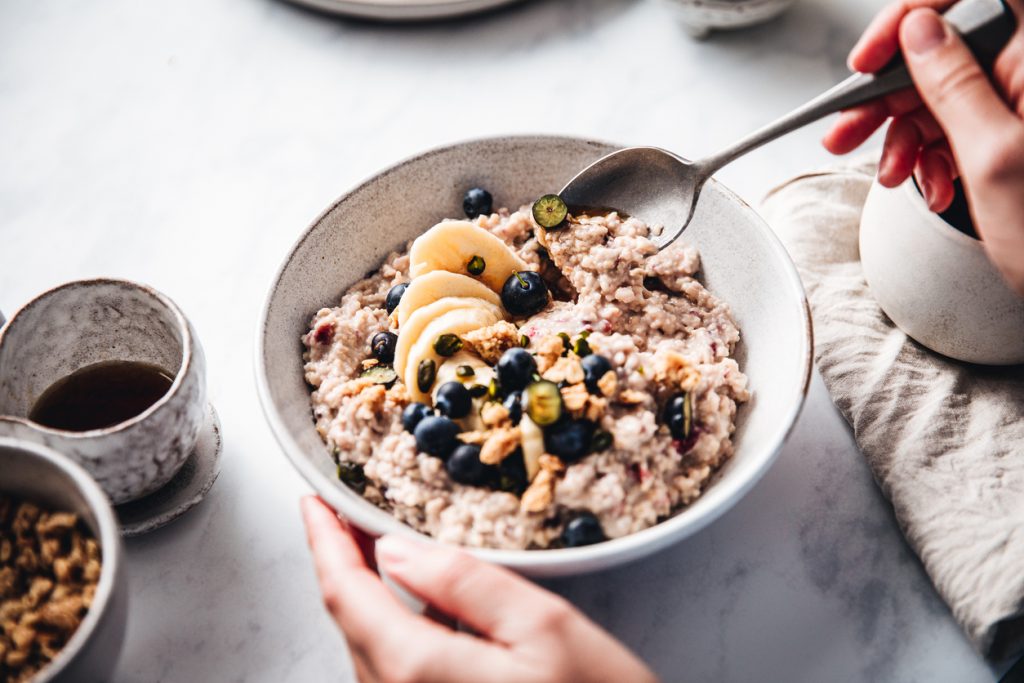
What about supplements?
If you’re eating well, these really shouldn’t be necessary – most research on the beneficial properties of nutrients comes from research on actual foods.
The exception is vitamin D. This is needed for a healthy immune system and for bone health, for example. This is why it’s recommended that people – especially those living in northern latitudes - take it for general good health even if they don’t have cancer. As production of the vitamin in the skin is triggered by exposure to sunlight in the winter months, the UK health bodies advise taking 10-25mcg (400-1000 IU) per day. For those who have little exposure to the sun, such as care home residents, the advice is they take a supplement all year round. In the US, the advice is that at-risk groups take 10-20mcg a day.
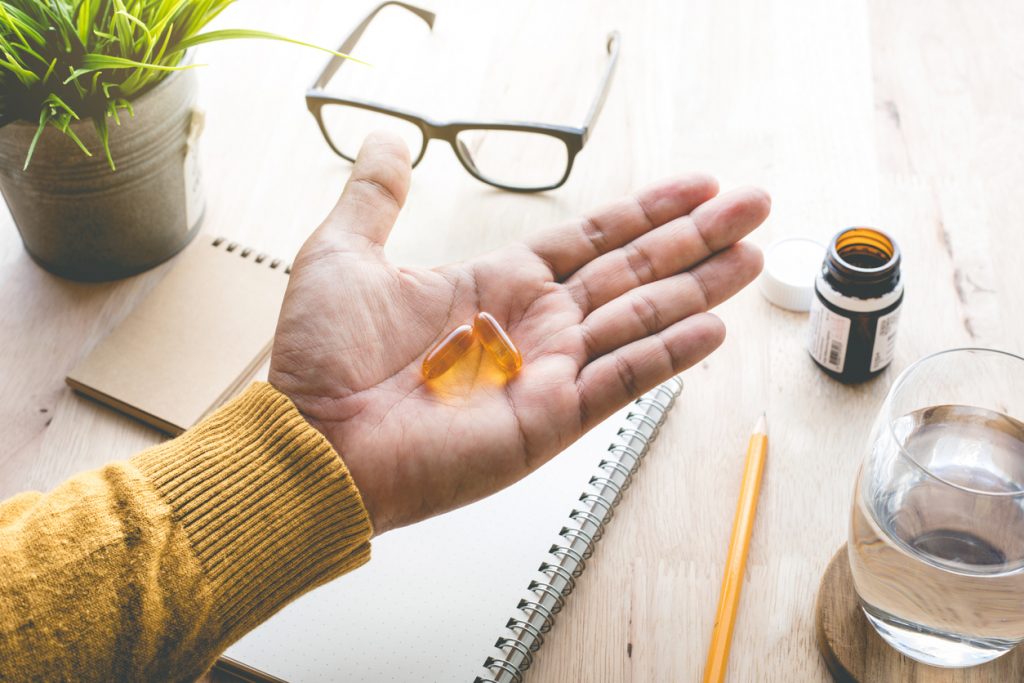
Once you start treatment, your medical team may suggest certain supplements (iron, for example), but unless you have been diagnosed with a specific deficiency, there’s no need to start taking them.
Do let your oncologist know if you are taking anything that is not prescribed to make sure it is safe to take alongside any treatment.

